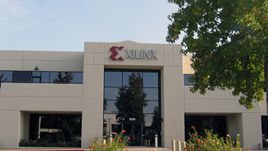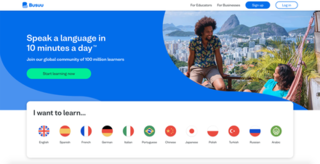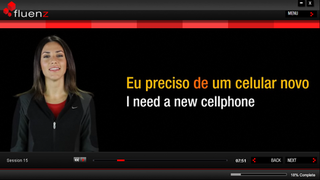Related Research Articles

Wolfram Mathematica is a software system with built-in libraries for several areas of technical computing that allow machine learning, statistics, symbolic computation, data manipulation, network analysis, time series analysis, NLP, optimization, plotting functions and various types of data, implementation of algorithms, creation of user interfaces, and interfacing with programs written in other programming languages. It was conceived by Stephen Wolfram, and is developed by Wolfram Research of Champaign, Illinois. The Wolfram Language is the programming language used in Mathematica. Mathematica 1.0 was released on June 23, 1988 in Champaign, Illinois and Santa Clara, California.
Language education – the process and practice of teaching a second or foreign language – is primarily a branch of applied linguistics, but can be an interdisciplinary field. There are four main learning categories for language education: communicative competencies, proficiencies, cross-cultural experiences, and multiple literacies.
Software AG is a German multinational software corporation that develops enterprise software for business process management, integration, and big data analytics. Founded in 1969, the company is headquartered in Darmstadt, Germany, and has offices worldwide.


Xilinx, Inc. was an American technology and semiconductor company that primarily supplied programmable logic devices. The company is known for inventing the first commercially viable field-programmable gate array (FPGA) and creating the first fabless manufacturing model.

Intuit Inc. is an American business software company that specializes in financial software. The company is headquartered in Mountain View, California, and the CEO is Sasan Goodarzi. Intuit's products include the tax preparation application TurboTax, personal finance app Mint, the small business accounting program QuickBooks, the credit monitoring service Credit Karma, and email marketing platform Mailchimp. As of 2019, more than 95% of its revenues and earnings come from its activities within the United States.
Factiva is a business information and research tool owned by Dow Jones & Company. Factiva aggregates content from both licensed and free sources. Providing organizations with search, alerting, dissemination, and other information management capabilities. Factiva products claim to provide access to more than 32,000 sources such as newspapers, journals, magazines, television and radio transcripts, photos, etc. These are sourced from nearly every country in the world in 28 languages, including more than 600 continuously updated newswires.

Rosetta Stone Language Learning is proprietary, computer-assisted language learning (CALL) software published by Rosetta Stone Inc, part of the IXL Learning family of products. The software uses images, text, and sound to teach words and grammar by spaced repetition, without translation. Rosetta Stone calls its approach Dynamic Immersion.

RapidMiner is a data science platform that analyses the collective impact of an organization's data. It was acquired by Altair Engineering in September 2022.

PrepMe is a for-profit American company that offers online courses and tutoring for standardized achievement tests, in particular those offered by the Educational Testing Service (ETS), such as the PSAT and SAT; and the ACT offered by ACT, Inc. PrepMe also developed its Coursification platform to open its adaptive online learning platform to publishers. Over 100,000 students have used the company's programs.
MindLeaders was an e-learning and organizational development company with a global headquarters in Dublin, Ireland and offices in the UK, US, South Africa and Australia which has been described by Bersin as a "global e-learning player" along with Skillsoft and Element K. The company had a content library, mainly in the business skills and IT professional area but also for social care, hospitality and more general compliance training in the UK. These courses were typically accessed through one of two learning management system (LMS) platforms owned by the company. Whilst not a widely known brand, MindLeaders content was resold by consumer-facing channel partners including learndirect, Monster.com and Cornerstone OnDemand.

Language preservation is the preservation of endangered or dead languages. With language death, studies in linguistics, anthropology, prehistory and psychology lose diversity. As history is remembered with the help of historic preservation, language preservation maintains dying or dead languages for future studies in such fields. Organizations such as 7000 Languages and the Living Tongues Institute for Endangered Languages document and teach endangered languages as a way of preserving languages. Sometimes parts of languages are preserved in museums, such as tablets containing Cuneiform writing from Mesopotamia. Additionally, dictionaries have been published to help keep record of languages, such as the Kalapuya dictionary published by the Siletz tribe in Oregon.
Babbel GmbH, operating as Babbel, is a German subscription-based language learning software and e-learning platform, available in various languages since January 2008.

Busuu is a language learning platform on web, iOS and Android that allows users to interact with native speakers. In 2021, Chegg acquired Busuu for $436 million.
Before You Know It is language acquisition software package that listens to students and gives them detailed feedback on their pronunciation. There is also freeware for both Windows and Mac OS X which does not check pronunciation. Paid versions present continuous text, which can be used in various ways. The freeware version uses a flashcard software system. Courses were available in over 70 languages. Courses branded as Byki were produced by Transparent Language Online, which still produces courses under that and other names.

edX is an American for-profit online education platform owned by 2U since 2021. The platform's main focus is to manage a variety of offerings, including elite brand bootcamps.

Fluenz is a digital language learning platform developed by Fluenz Inc., a U.S. entrepreneurial company. The interactive content can be downloadable or accessed online on computers and mobile devices. The product range consists of programs to learn Spanish as spoken in Latin America, Spanish as spoken in Spain, French, Italian, Mandarin, German, and Portuguese.
Pluralsight, LLC is an American privately held online education company that offers a variety of video training courses for software developers, IT administrators, and creative professionals through its website. Founded in 2004 by Aaron Skonnard, Keith Brown, Fritz Onion, and Bill Williams, the company has its headquarters in Farmington, Utah. As of July 2018, it uses more than 1,400 subject-matter experts as authors, and offers more than 7,000 courses in its catalog. Since first moving its courses online in 2007, the company has expanded, developing a full enterprise platform, and adding skills assessment modules.
Perforce Software, Inc. is an American developer of software used for developing and running applications, including version control software, web-based repository management, developer collaboration, application lifecycle management, web application servers, debugging tools and Agile planning software.

MobyMax is an online education program used by grades K-8. MobyMax includes 27 subjects including math, reading, phonics, language, vocabulary, spelling, writing, science, social studies, preparations for state examinations, and more. The program also provides classroom tools such as assessments and progress monitoring and offers games, badges, and contests for the students.
References
- ↑ "Language training company based in Nashua inspired by son's word games". Nashua Telegraph. Archived from the original on 2016-03-06. Retrieved 2013-03-05.
- 1 2 "The Five Principles of Effective Second Language Acquisition". Transparent Language, Inc. Retrieved 5 March 2013.
- ↑ "Government Language Learning - CL-150 Platform".
- ↑ Kennerly, Ethan (May 2009). Runesinger: A Demonstration Of Coupling Korean Phonics And Spelling To A Videogame (PDF) (MFA thesis). University of Southern California.
- ↑ USMC Center for Advanced Operational Culture Learning (2014-04-24). "Marines' Views on How to Improve Marine Corps Cultural and Language Training and Education Programs" (PDF). DTIC. Archived (PDF) from the original on May 21, 2021. Retrieved 2021-05-20.
- ↑ Volnikova, E.A. , and Yu.M. Gorbacheva (2006-12-08). "The Possibilities Of Using Advanced Internet Resources In The University Educational Process (In Terms Of Foreign Languages Studying)" (PDF). Penza State Technological University (Penza, Russia) (in Russian).
{{cite web}}: CS1 maint: multiple names: authors list (link) - ↑ "The Business of Rescuing Languages". Transparent Language. 20 February 2013. Retrieved 2013-03-05.
- ↑ "Transparent Language H.E.L.P. Program". Transparent Language. Retrieved 2013-03-05.
- ↑ "Leading Language-Learning Company Launches "7000 Languages Project"". Transparent Language. Retrieved 2013-07-23.